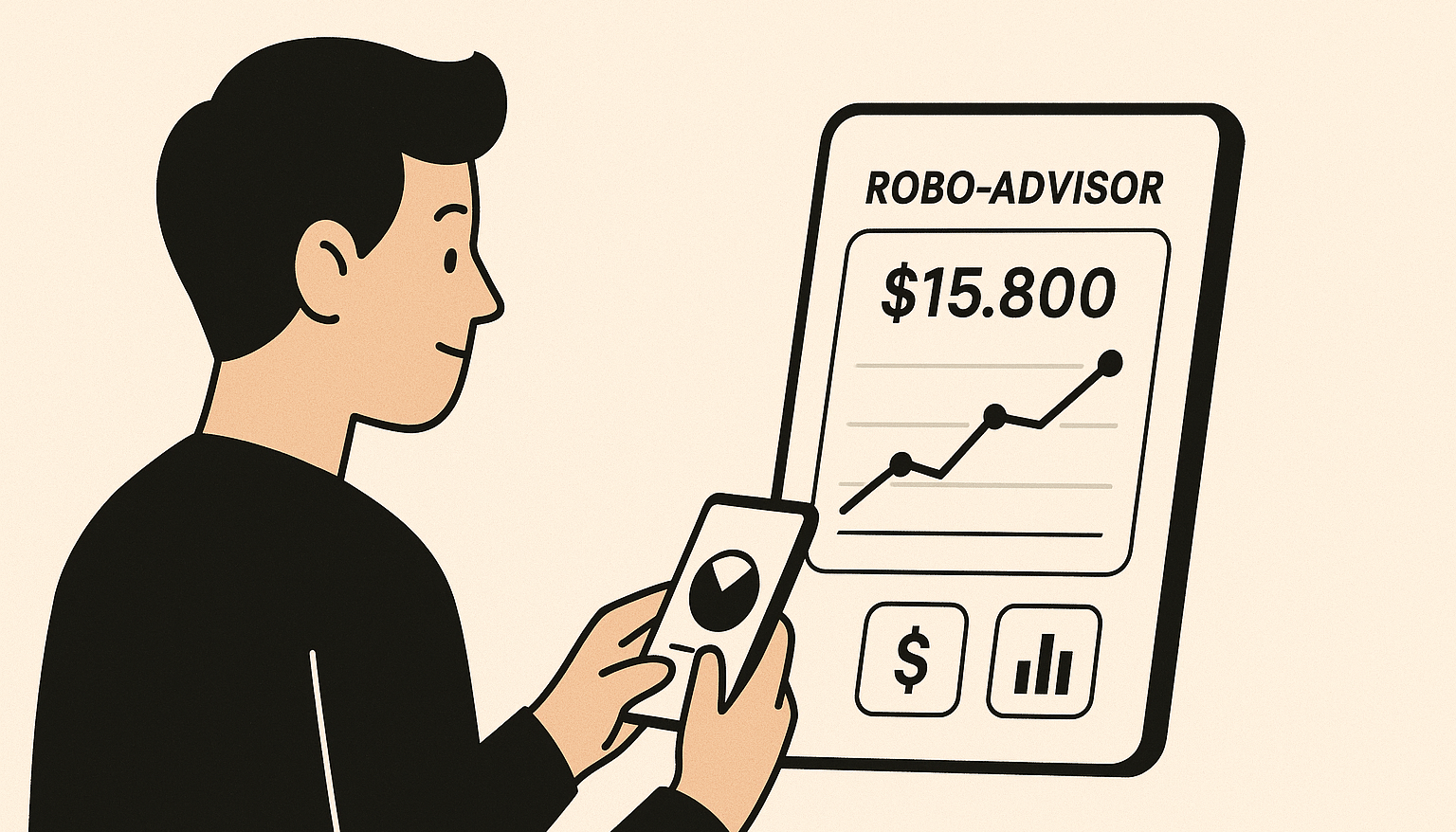In the not-so-distant past, “investing” sounded like something only the rich towkays did over cigars and kopi-O kaw at private golf clubs. Fast forward to today, and you’ve got robots helping you invest — not the Transformers kind, but something even better for your wallet: Robo-Advisors.
Let’s break it down: What are they, why are they booming in Malaysia, and most importantly — can they actually manage your duit better than humans?
What Exactly Is a Robo-Advisor?
Imagine if you had a financial advisor, but instead of a guy in a suit charging you RM500/hour, it’s an algorithm on your phone — working 24/7, never tired, never judging your maggi-in-cup financial moments. 🍜
Robo-advisors are AI-powered platforms that automate investment decisions for you based on your goals, risk appetite, and timeline. Think of them as your digital fund manager, but way more affordable and efficient.
The Malaysian Boom: Why Now?
In the last few years, several robo-advisors have popped up faster than a flash sale on Shopee.
Some popular names you’ve probably seen:
| Robo-Advisor | Minimum Investment | Management Fee | Notable Features |
|---|---|---|---|
| StashAway | RM0 | 0.2%–0.8% per annum | Goal-based investing, dynamic portfolios |
| Wahed Invest | RM100 | 0.49%–0.79% | Shariah-compliant, easy onboarding |
| MyTheo | RM100 | 0.5%–1.0% | Personalised ETFs, rebalancing |
| BEST Invest (BIMB) | RM10 | 0% (promos apply) | Islamic-friendly, local exposure |
So why the rise? Three reasons:
- Low Entry Barriers – RM10? That’s like, one nasi lemak with ayam goreng and teh tarik.
- Gen Z & Millennials – We want quick, app-based solutions that work while we sleep.
- Awareness of Financial Independence – FI/RE, siapa yang tak nak?
Can Robo-Advisors Actually Beat Human Advisors?
Let’s be real — for most everyday Malaysians, we don’t need a high-flying financial planner unless we’ve got 6-figure portfolios. Robo-advisors are designed to:
✅ Diversify your investments
✅ Automate monthly contributions
✅ Rebalance when needed
✅ Reduce emotional investing (no panic-selling when market drops 1%)
They use Nobel Prize-winning models like Modern Portfolio Theory and Mean-Variance Optimization. Sounds canggih, right? It’s like having a nerdy finance major who never sleeps managing your cash.
But — they’re not perfect:
❌ Limited personalisation
❌ No advice on taxes or estate planning
❌ May underperform in complex market conditions
Still, for the average abang and kakak trying to grow their duit slowly and steadily? They’re solid.
Human vs. Robo: A Local Analogy
Picture this:
- Human advisor = The makcik nasi lemak at the corner warung. Experienced, personal touch, might cost more but can customise to your taste.
- Robo-advisor = The nasi lemak vending machine. Fast, cheap, consistent — but don’t ask for extra sambal unless it’s programmed in 😅
Both have their place!
Tips Before You Dive In
If you’re planning to start:
- Stay invested long-term – Don’t get cold feet when markets go up and down.
- Know your goals – Retirement? House? Duit kahwin?
- Check the fees – Even small percentages add up over years.
- Start small, stay consistent – Even RM100/month grows with time.
Want to try Wahed Invest? If you’re signing up, use my referral code: MUHAZA45 to get a bonus of RM10!
What’s Next for Robo-Advisors in Malaysia?
With AI evolving faster than our ability to get through KL traffic, robo-advisors will only get smarter. We might even see integration with EPF, ASNB, or e-wallets — imagine topping up your robo portfolio from your Touch ‘n Go wallet. Syok, kan?
Malaysia’s financial landscape is slowly shifting — and with smart tools like robo-advisors, the power is truly in your hands (and your phone).
Final Thoughts
Robo-advisors aren’t a get-rich-quick scheme. But if you’ve ever said “I want to invest but don’t know where to start,” then this might just be your golden ticket.
So go ahead, automate your future — and maybe reward yourself with that ayam goreng after every RM100 saved. You deserve it, kan?
A Little Note: Just a friendly reminder, this article is for sharing ideas and general info. It’s not official financial advice. When it comes to big money decisions, it’s always a good idea to chat with a qualified financial advisor who can give you personalised guidance.


Leave a Reply